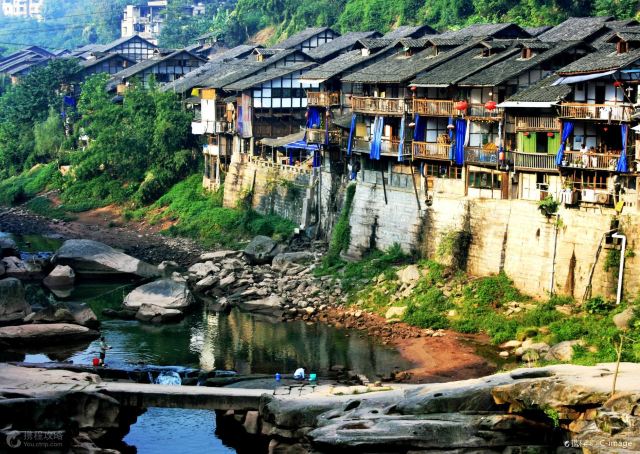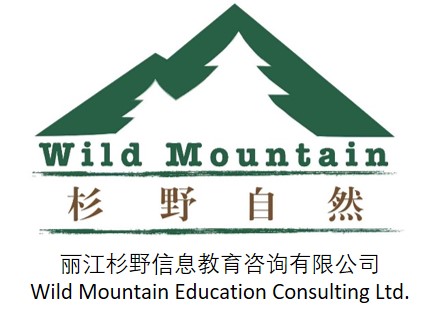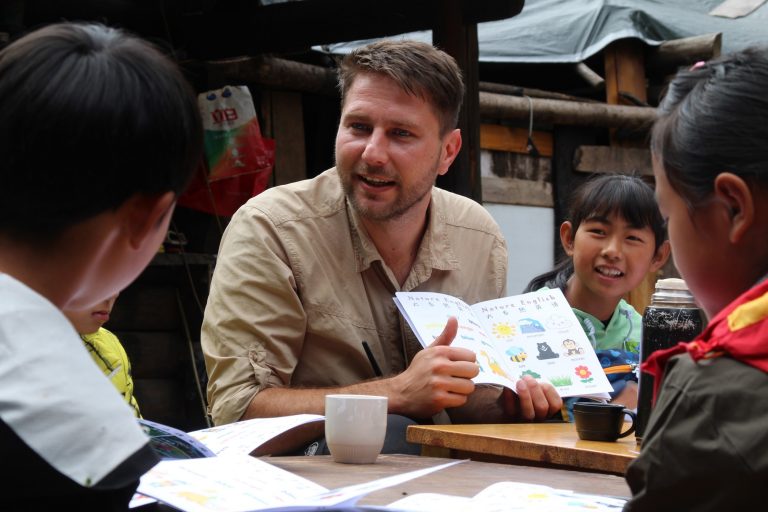
Western China Tourism Series – Is Chinese tourism going “rural”?

Chinese tourism sector is constantly reinventing itself and evolving, and it often does so following the clear guidelines of the Chinese government. We saw it for example in our previous episode of our “Western China Tourism Series” in the case of the Bashu Cultural corridor, a project supported by regional leaders.
We analyze in our column today the topic of a State led tourism innovation and policies with regard to a new national objective: to support rural tourism to favor the economic development of the less developed areas of the country and alleviate poverty. We can then provide our readers with the example of a “ecotourism” company co-founded by a European tourism entrepreneur in Yunnan.
Is Chinese tourism now going rural?

1- New directives, new tourism in China: the role of rural tourism
What is rural tourism?
According to the UNWTO, rural tourism is “a type of tourism activity in which the visitor’s experience is related to a wide range of products generally linked to nature based activities, agriculture, rural lifestyle/culture, angling and sightseeing”. There are also numerous definitions of rural tourism in scientific literature, both in Western and Chinese scholars’ works. If we want to consider two other definitions, we can consider that of Lane (1994), for which rural tourism means a form of tourism that is located in rural areas, reflecting the differing and complex patterns of rural environment, economy, history and location. Secondly, Sharpley and Roberts (2004) add that rural tourism should be sustainable activities, and rural tourism should be an agent of rural development. To find numerous other definitions of the term in Chinese authors, we recommend consulting Wang and Bijava (2013).

The role of the Chinese Government in promoting rural tourism in China to alleviate poverty
The ability of policy makers to launch and implement new calibrated and precise strategies, not only in the tourism sector, has been one of the keys of Chinese economic miracle. Chinese policymakers can design plans in the long run. After the formal launch of a strategy, a “design phase” follow and new adjustments can also be made to improve the policy to gradually get better results. When it comes to tourism, the modus operandi has been the same in recent years.
Although China has created immense opportunities in the last forty years of “opening up and reforms”, it still has large areas of the country that are lagging behind. It is the case of rural China, far from Chinese megalopolis frenzyness and urban technological innovation that make the country renowned worldwide. When it comes to rural areas, with the support of central government, tourism can certainly play a key role in their economic development. According to Luo Shugang, Minister of Culture and Tourism, the development of rural tourism is associated with the government’s fight against poverty, a central theme in recent years and very often heralded by Chinese leaders. As CNN’s Ben Westcott and Shanshan Wang pointed out, Prime Minister Li Keqiang reported in May 2020 that some 600 million of Chinese, about 40% of the total population, earned an average of about 1000 yuan per month (about 150 dollars), a number that is extremely reflective to understand the country, its difficulties but also future potential especially in rural areas. The Communist Party of China reported in November 2020 that it had achieved its goal of eradicating poverty in China. In this battle the public had been central: according to Xinhua, the government invested approximately 656 million dollars between 2016 and 2020, to improve “cultural progress and tourism development” in impoverished rural areas.
New rural routes and new life for rural tourism in 2021
In recent months, several Italian tourism specialists reported that the Chinese Ministry of Tourism has launched a list of 300 itineraries in the country’s agricultural areas”, featuring a combination of revolutionary history and lush ecological environments; the routes provide a glimpse into China’s poverty eradication and rural vitalization achievements. “Rural tourism” has become a hot topic recently and for a good reason: in the first months of 2021 “China’s rural destinations were visited by 984 million people”!
Finally, according to data from the Ministry of Agriculture and Rural Affairs, in April 2021 over 60 percent of the leisure tourism sector in China’s rural areas resumes business, while for the Ministry of Culture and Tourism, in 2019 “the total number of trips to rural areas in China was 3,1 billion, up 9.7 percent year-on year, accounting for more than half of the total domestic trips, and the total revenue of rural tourism was 1.8 trillion yuan, an increase of 11,3 per cent year on year. Employees in the rural tourism sector accounted for 34.4 percent of the total number of employees at the sites monitored.

2- The case of “Wild Mountain”, a multinational tourism company operating into Chinese wild
If Chinese tourism is trying to reinvent itself in this period of difficulties but also opportunities, shifting its focus on domestic market, rural tourism can be a new kind of tourism to be carefully studied and followed, also from abroad. Rural tourism can be directly linked to two more types of tourism: agritourism and ecotourism.
As Łukasz Piotr Andrzej Mądrzyński, co-founder of the company “Wild Mountain Education Consulting“, stated in his PhD dissertation at Tongji University (titled “Ecotourism with Chinese characteristics. A study of Chinese nature tourists in Lijiang, Yunnan Province, China), the concept of ecotourism (生态旅游) has seen a rapid growth in popularity across China. It originated in the West and is broadly understood as a responsible form of nature-based tourism. It is often described as supporting nature conservation, creating local benefits and involving learning. However, many argue that ecotourism in China embodies its own set of characteristics that are divergent from the “Western” definitions. Previous studies suggest that Chinese ecotourism puts more focus on culture; landscape viewing/aesthetics; mental and physical well being/health; as well as comfort/convenience. Additionally, Chinese ecotourism is reported to be less focused on wilderness, doesn’t consider scale or group size limitations and allows a greater degree of modification to the natural environment.
Here is our short interview with Łukasz about his experience as tourism specialist in Yunnan.

Dear Lukasz, can you introduce yourself to our audience?
My full name is Łukasz Piotr Andrzej Mądrzyński but people call me Lukas for simplicity. I’m a big nature fan. During my PhD studies at the UNEP-Tongji Institute of Environment for Sustainable Development, I had an opportunity provided by a local NGO to do my research in Lijiang Yunnan province. I focused on ecotourism and environmental education. Because it’s so beautiful here. After my graduation, I decided to move permanently and started a company with some of my local environmentalist friends. Since 2014 I have been deeply engaged in research and practice of conservation and sustainable development in this amazing region.
What are the services offered by your company?
Our company provides bilingual ecotourism, environmental education and sustainability consulting services. If you’re a family or a group of friends we can take you to remote areas to experience and learn about local nature and culture. If you’re a school we can provide your students with meaningful and unforgettable educational programs. If you’re in a scenic area, nature reserve or a national park, we can help you to become more sustainable in your operations. All of our products are designed to support local natural and cultural heritage conservation and sustainable development.
We strive to enrich people’s lives through high-quality educational experiences. To raise awareness about the local natural and cultural heritage. To strengthen conservation through tangible and effective actions. To support sustainable development of local communities and their environments. Our company works closely with local NGOs, governmental bureaus and communities to assure our operations are in line and up to date with local conservation and sustainability efforts. We partner with local communities during planning, organization and implementation of our EcoTrips and EcoCamps. They provide transportation, accommodation, food, guiding and activities for all of our programs. We make sure they receive just economic benefits for their commitment to sustainable development.

How was your business impacted by the pandemic?
We had to cancel many of our groups and delay some of our projects but we are confident and ready to resume as the domestic travel restrictions ease.
Why are you based in the Yunnan tourism market?
Yunnan is the most naturally and culturally diverse province of China. From tropical jungles of Xishuangbanna to ice-capped mountains of Shangri-la, it boasts immense biodiversity of flora and fauna. That is the main reason why Yunnan was chosen to host the 2021 UN Convention on Biological Diversity(COP 15). It is also a home of 25 ethnic minority groups with their distinct customs, traditional clothes, food, art, music and more. In the past, lack of proper transportation and accommodation infrastructure, especially in some of the more remote areas, was an obstacle for growth of the tourism market in Yunnan. These challenges have been resolved in recent years and now It’s really hard to think of any weaknesses in terms of the Yunnan tourism market.
What are your plans for 2021?
In 2021 we plan to expand our operations and provide more opportunities for travelers, students and organizations to experience, learn and support heritage conservation and sustainable development in Yunnan.
Article by Marco Bonaglia

Resources
Lane B (1994), What is rural tourism? in Journal of Sustainable Tourism 2 (1/2):7-21
Sharpley R., Roberts L. (2004), Rural tourism –10 years on, in International Journal of Tourism Research, 6(3):119-124
Wang L., Bijaya D. G.C. (2013), Rural tourism development in China: Principles, models and the future, in Journal of Mountain Science, 10:116-129




